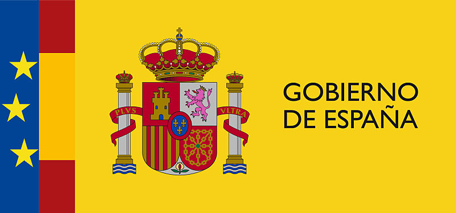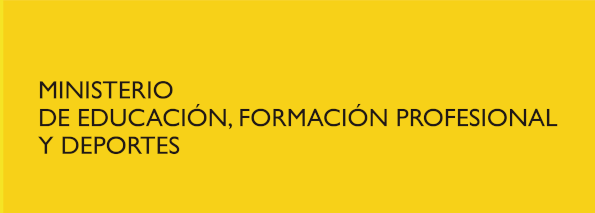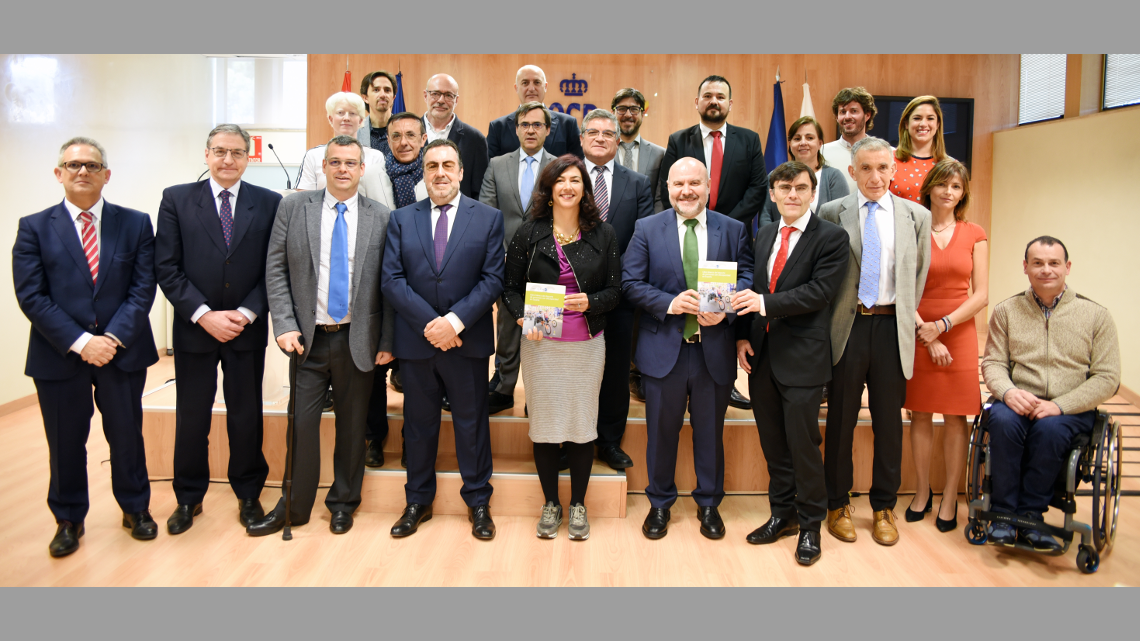María José Rienda: “ sport has no gender. The sport has a very powerful force to break down barriers and lead to a better society ”
Madrid, 05 march 2019.-The high council of sports has hosted the presentation of todayLibro Blanco of sport of persons with disabilities in Spaina comprehensive study, which offers the most up-to-date information on sports. The event has been chaired by the secretary of State for sport, María José Rienda, which has been accompanied by Miguel Carballeda, president of the Spanish Paralympic Committee; Alberto Durán, executive vice president of the ONCE foundation, Luis Cayo Pérez Bueno, president of CERMI, Comite Español de Representantes de Personas con Discapacidad and Juan Ramón Amores, Director General of Youth and sports of the board of Castilla-La Stain.
During his speech, María José Rienda said that the study introduced an initiative is “ absolutely necessary, updating and enriching. Is the basis for further growth in equality, because sport has no gender. The sport has the solution to force down barriers, challenges and achieving a better society, more just and equal ”.
The Secretaria de Estado para el Deporte, it had also underlined that since the promotion of women's sports and of persons with disabilities have been two of the main objectives of this parliamentary term, using the example that “ the preliminary draft of the sport act is the perfect ally for further progress. This white paper we served as a roadmap to walk together towards a new model, with the collaboration of the autonomous communities and the sports federations, as reflected in the sectoral conferences of sport are chaired by the minister ”, who finally there has been unable to attend the event because of a health problem.
Juan Ramón Amores, director general of youth and sports of the board of Castilla La Mancha and developing entity of the white paper, has emphasized the “ courage to María José Rienda ” by practising this project, affirming that the study “ is a starting point for progress ”. He added that their autonomous community “ is involved in sport of persons with disabilities from early education in schools, showing the difficulties that these people. Today is the first step towards achieving the goal of ensuring that they speak of sportsmen, no labels ”.
Miguel Carballeda, president of the Spanish Paralympic Committee, has appreciated the “ quiet ” provided by the minister José Guirao and María José Rienda in successive meetings held in the first draft of the sport act: “ it has been invested since the first time by the sport of persons with disabilities and women's sport, in order to achieve absolute equality between men and women, with and without disabilities. This is the key. María José and the minister have listened to us and we have taken into account. Visibilidad, equality and inclusion lead us to continue to improve as a society and as a country ”.
Alberto Durán, first vice-president of the ONCE Foundation; it has affirmed that sport is one of the most highly demanded activities by persons with disabilities. “ This book serves to promote the full inclusion of persons with disabilities with initiatives for transforming society. It should not have children sentenced to look at how others do sport due to lack of resources, disabled sportspeople are ambassadors for steadfastness and excellence because we want equal ”, has pointed out.
Luis Cayo Pérez Bueno, president of CERMI, Comite Español de Representantes de Personas con Discapacidad, has stated that “ this white paper makes it an excellent cartography that we should conduct the arbitration of the future. Sport is an element of socialization, and makes us feel ones, supported and valued, in an environment that does not know the admissibility of the richness of diversity ”.
The conclusions of theLibro Blanco of sport of persons with disabilities in Spain,stresses that sport is the leisure activity more sued by persons with disabilities but only less than 20 per cent of the sports facilities comply with full accessibility and only 0.32 per cent of these people have 'licencia federativa down from 7.7 per cent of the general population. To develop the in-depth study, involving more than 20 authors and contributors.



